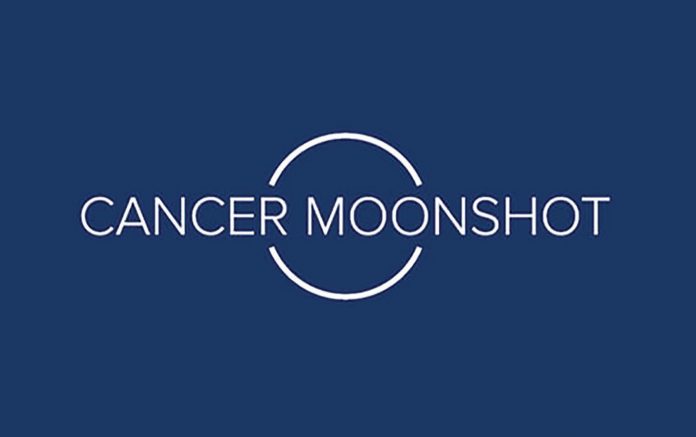Posted: August 2018
In October 2017, the United States National Cancer Institute (NCI) launched a major effort to expand the discovery and validation of predictive biomarkers on cancer immunotherapy. This $56.3-million NCI initiative is part of the U.S. Cancer Moonshot, launched by former President Barack Obama and Vice President Joe Biden and funded by the 21st Century Cures Act – Beau Biden Cancer Moonshot. This new program calls for the creation of four national Cancer Immune Monitoring and Analysis Centers (CIMACs) and a Cancer Immunologic Data Commons (CIDC) for systematic collection, processing, and analysis of blood and tumor samples using state-of-the-art immune profiling strategies from samples collected from patients enrolled on NCI-funded early-phase immunotherapy trials, including oncology research groups from the NCI’s National Clinical Trial Network and the NCI Experimental Therapeutics Clinical Trials Network. The four CIMACs have been awarded to: Holden Maecker, PhD, and Sean Bendall, PhD, of Stanford Cancer Institute, Stanford; Sacha Gnjatic, PhD, of Precision Immunology Institute and the Tisch Cancer Institute at Icahn School of Medicine at Mount Sinai, New York; Ignacio I. Wistuba, MD, Chantale Bernatchez, PhD, and Gheath Al-Atrash, MDO, PhD, of The University of Texas MD Anderson Cancer Center in Houston; and Catherine J. Wu, MD, and Stephen Hodi, MD, of Dana-Farber Cancer Institute in Boston. Shirley Liu, PhD, and Ethan Cerami, PhD, also of Dana-Farber have been awarded an NCI-supported CIDC, which will collect the resulting data for exploration of biomarkers of immune response.

The centers are also part of the Partnership for Accelerating Cancer Therapies (PACT) announced early this year by the U.S. National Institutes of Health (NIH). The 5-year, $210-million public-private partnership aims to identify and develop biomarkers to guide and improve treatments that help the immune system attack cancer. In announcing the PACT, NIH leaders note that cancer immunotherapies have led to dramatic improvement in outcome for some patients, a success that must be extended to more people and a greater variety of cancers.
One of the challenges in developing biomarkers that can predict what treatment would be best for an individual patient is standardization of research tools and approaches. “It’s important to have these dedicated centers that use standardized methods and assays to better understand how the immune system and tumors respond to treatment and to develop predictive biomarkers for novel immunotherapy approaches,” Dr. Wistuba said. ✦











